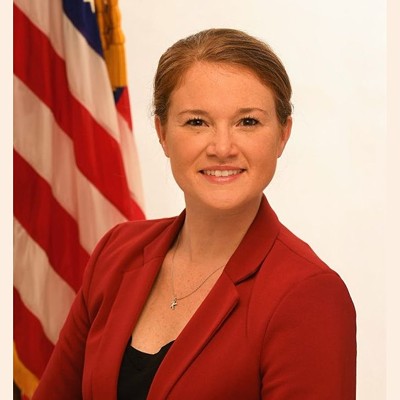When you are decrying the supposed wastefulness of government spending, your go-to word is "pothole." If you imagine it as a tool used to construct such arguments, its handle would be worn smooth by repeated use.
The pothole is predictably deployed to criticize spending on projects or programs that a person views as frivolous. "Why are we building a [insert name of allegedly unnecessary project here] when there's a pothole the size of a moon crater on my street!"
Street maintenance is an important government function, no doubt, and particularly from a bicycling perspective. You haven't truly experienced a pothole until you've hit one on a bicycle.
In fact, the first paved roads in our country came to us courtesy of bicyclists, who began lobbying for better roads in the 1880s. This elevated the need for a national road system and led to the creation of the agency we know today as the Federal Highway Administration.
This historical fact makes it all the more frustrating when bicycle projects, such as the Truman Greenway, are singled out as worthy of consideration only after "real problems" are addressed. This mindset underestimates both the need for an expanded bicycle network in Savannah and the economic, public safety and other benefits to be derived from investing in active transportation.
The advocacy organization Georgia Bikes examined census data last week and reported, "Nationally, 2012 saw an impressive 10 percent increase in bicycle commuters since 2011. Since 2000, bicycle commuting has risen more than 60 percent."
In our state around 2 percent of working Georgians said they either walked or rode a bicycle to work in 2012 and another 2 percent indicated transit is their main mode of commuting. And there is reason to believe the number of people who don't drive is underestimated.
Sadly, people who bicycle and walk to work and other destinations, "represented a grossly disproportionate 15.5 percent of all traffic fatalities in 2012," according to Brent Buice, executive director of Georgia Bikes.
"If for no other reason than safety — and there are plenty of other worthy reasons — Georgia must commit meaningful transportation investments toward improving both bicycle and pedestrian facilities."
Reasonable people understand that public expenditures of this kind are proper and beneficial uses of our tax dollars. Some folks, however, will go back to the toolbox and pull out the second most popular implement: congestion.
Ah, traffic! How do we fix it? Wider and faster roads of course! That's been the status quo "solution" to traffic congestion for decades. But times are changing and massive spending on automobile-only infrastructure — to the exclusion of bicycle, pedestrian and transit projects — will soon be regarded as a colossal mistake.
A study released last month by the U.S. Public Interest Research Group reveals, "After 60 years of almost constant increases in the annual number of miles Americans drive, since 2004 Americans have decreased their driving per-capita for eight years in a row."
PIRG's state-by-state analysis shows that average per-person vehicle miles travelled is down 11.68 percent in Georgia. Only four other states showed larger declines in driving.
As similar research has concluded, the decrease in driving cannot be tied to the economic downturn. In fact, the study finds that, "The states with the biggest reductions in driving miles generally were not the states hit hardest by the economic downturn. The majority—almost three-quarters—of the states where per-person driving miles declined more quickly than the national average actually saw smaller increases in unemployment compared to the rest of the nation."
In addition, the study indicates, "Driving miles per person are down especially sharply among Millennials."
On the other end of the age spectrum, growing research describes the perils seniors encounter as they grow older in automobile-centric communities, including isolation, depression, health problems and dependence on family members for transportation.
An AARP report, "Aging in Place: A State Survey of Livability Policies and Practices," concludes that "Increased mobility options can reduce reliance on transportation by personal car" and recommends, "designing 'Complete Streets' to enable all users, regardless of age or ability, to get to where they want to go." This underscores the fact that many seniors will still be able to walk, ride bicycles and use transit after driving is no longer possible for safety or economic reasons.
Many Savannahians know the long-awaited Truman Greenway and other bicycle pedestrian infrastructure projects are not wasteful, misguided or extravagant. They are prudent investments that will serve citizens now and in the future. If we are smart enough to undertake these projects today, we'll be in much better condition — physically and fiscally — down the road.

























